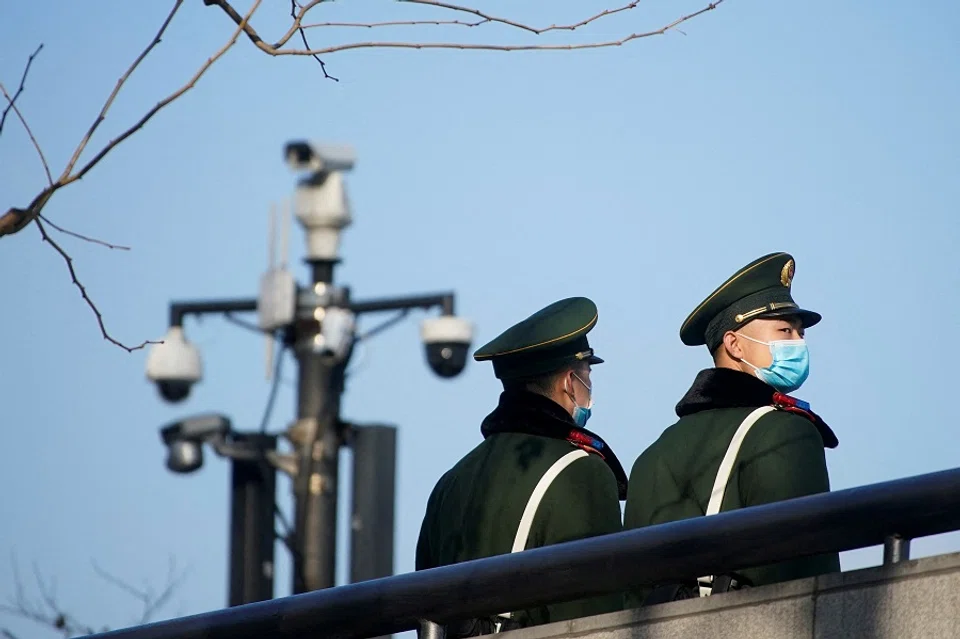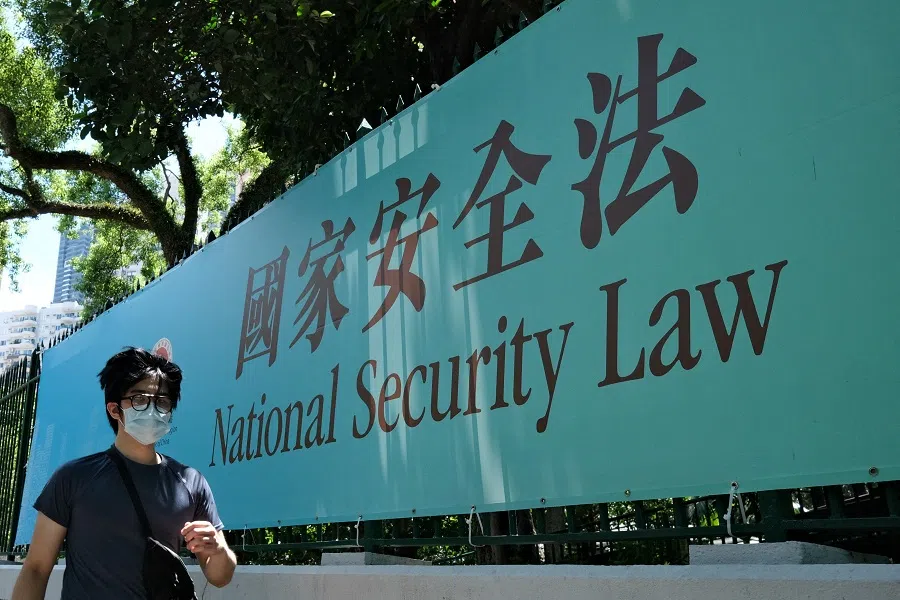China-focused multinational firms are facing increasingly complex legal environments
As one of the largest recipients of foreign investments, China has no shortage of publicly disclosed cases of corrupt business dealings. But transnational firms are still willing to take the risks and cultivate relationship-building strategies in their business activities. They are even prepared to face a "double jeopardy" situation when they are penalised in their home and overseas locations. But their operating environment could get even more challenging with the US and China clamping down on transnational crime, and the increasing use of domestic judiciaries to regulate extraterritorial legal matters.

Conventional wisdom suggests that firms and investors would refrain from investing in "risky" market environments that lack independent judicial institutions to constrain state power and enforce contracts. It follows that they would prefer markets protected by systems with effective checks and balances over countries where judicial decision-making is susceptible to corrupt practices and undue influence.
Be that as it may, we still see much domestic and foreign investment flowing into high-risk jurisdictions that lack the rule of law and which tolerate blatant or subtle forms of expropriations of private enterprises. Scholars have also found that in the past two decades, much of foreign direct investment in the primary sector has flowed to unconventional, politically risky destinations.
A prominent explanation for this focuses on firms' capacities to mitigate political and legal risks. Special attention has been paid to the role of relationship-building strategies in business activities, which also includes unethical and illegal behaviour such as rent-seeking and corruption.
Bribery is often justified as an effective tool to "grease the wheels of commerce" when institutions of governance are weak, in particular when judicial constraints over bureaucratic misconduct are so ineffective that the perpetrators can profit from cronyism that provides some measure of domestic legal immunity.
Enhanced judicial oversight and accountability would actually result in diminished business opportunities and benefits for these actors.
Firms willing to brave China's 'risky' business environment
As one of the largest recipients of foreign investments, China has no shortage of publicly disclosed cases of corrupt dealings involving foreign firms, China-based subsidiaries or local partners and Chinese government officials.
In this landscape, state-owned enterprises (SOEs) have been particularly valuable partners for foreign and private firms, especially in some of the most profitable yet regulated sectors such as the pharmaceutical industry and the financial industry.
In this regard, from the perspective of investors, the attractiveness of strong rule of law institutions is relative to the amount of illicit proceeds obtainable from rent-seeking and rent-sharing arrangements between state authorities and private businesses.
Enhanced judicial oversight and accountability would actually result in diminished business opportunities and benefits for these actors. Impartial administration and enforcement of market integrity rules, a normatively desirable goal in economic development programmes, would nevertheless imply a loss of market privileges for businesses heavily invested in relationship-building and adaptation to local institutions and norms.

For decades, globalised businesses have been able to enjoy "the best of both worlds". They are often registered, headquartered or listed in developed jurisdictions with robust rule of law institutions that provide sound protection of investor rights. At the same time, they tap into lucrative developing markets and benefit from the favouritism and cronyism allowed under weak local institutions and susceptible judiciaries. By forging the right partnerships, some foreign firms can enjoy more favourable regulatory treatments than their competitors, raking in streams of rents not obtainable in other markets governed by more independent regulatory regimes.
Double jeopardy
The rise of transnational anti-corruption legal regimes has changed firms' calculations, and in many instances created a "double jeopardy" problem for globally-connected firms.
The Foreign Corrupt Practices Act (FCPA), passed in 1977, is the first legislation in the world to recognise and seek to curb the contribution of domestically based corporations to foreign bribery. The Act criminalises the payment of bribes to foreign officials or any government instrumentalities for the purpose of obtaining or retaining business.
The US is thus far the most active country in tackling transnational corruption, and the intensity of enforcement has significantly increased over time. US authorities are also increasingly cooperating with their counterparts in developed countries to prosecute transnational bribery.
As shown in a chart by Stanford University's Foreign Corrupt Practices Act Clearinghouse on the location of misconduct alleged in FCPA-related enforcement actions (by FCPA matter), actors in China have been heavily targeted by FCPA enforcement - in fact China has received the most FCPA-related actions in the world. Some US legislators are even pursuing a further expansion of the scope of corrupt arrangements and bargains in China to be regulated under the FCPA.
Transnational anti-corruption enforcement may significantly affect the competitive landscape of targeted countries.
This global initiative has created an institutional dilemma and a double jeopardy problem for globalised firms and investors. The arbitrary market access and regulatory requirements in developing countries provide lucrative rent-seeking opportunities for well-connected actors. But complying with such requirements subjects these actors to transnational legal liabilities imposed by more developed jurisdictions for failing to abide by their high ethical and regulatory standards.
There is no easy solution to this double jeopardy problem for firms with strong incentives to be connected to both worlds. Transnational anti-corruption enforcement may significantly affect the competitive landscape of targeted countries. It could also force transnational enterprises, which often act as intermediaries of institutional diffusion across developed and developing economies, to eventually decouple from either world in order to mitigate political risks arising from contradictory institutional expectations.

The emergence of transnational legal regimes and the resultant institutional dilemma faced by firms are not limited to corruption issues.
In the aftermath of the 2020 Hong Kong National Security Law that criminalises taking political stances against the central government in Beijing, global banks and wealth managers in Hong Kong started scrutinising their clients for potential ties to pro-democracy movements and subjecting them to additional due diligence requirements.
At the same time, however, the Hong Kong Autonomy Act of the US imposes sanctions upon Hong Kong and Chinese officials responsible for implementing the national security law. As a result, the same global banks are also screening politically connected clients such as Chinese politicians, government officials and senior executives of state-owned enterprises for their political exposure to such US regulatory requirements.
This has, in turn, prompted China to pass the Anti-Foreign Sanctions Law to strengthen China's legal toolkit to "counter foreign sanctions, interference and long-arm jurisdiction", which further complements its own Rules on Counteracting Unjustified Extraterritorial Applications of Foreign Legislation and Other Measures passed in early 2021, a measure potentially targeting the extraterritorial applications of secondary sanctions as demonstrated in the case of Huawei.
...they [globalised firms] are often caught in the increasingly contentious use of domestic judiciaries in geopolitical manoeuvres.
Manifestation of geopolitical tensions
These episodes of "conflicts of laws" suggest that geopolitical tensions have been increasingly manifested through a battle between courts: domestic judiciaries can affect foreign policy outcomes by regulating the behaviour of subjects in foreign jurisdictions.
In the hotly contested area of high-tech competition, domestic courts also try to assert national interests when foreign actors and jurisdictions are involved.
In one incident, a Chinese local court issued an injunction order that bars the US technology-patent company InterDigital from litigating in an Indian court in order to collect licensing fees from the Chinese smartphone maker Xiaomi. However, InterDigital still won a ruling in an Indian court that prohibits enforcement of the Chinese injunction order.
Unfortunately, for globalised firms with exposures to multiple jurisdictions with diverse legal and regulatory requirements, this means that they are often caught in the increasingly contentious use of domestic judiciaries in geopolitical manoeuvres.
...it is likely that China will become more active in asserting extraterritorial jurisdiction and in exploiting this toolkit not only to counter foreign actions but also to achieve broader international objectives.

Going forward, it is likely that China will become more active in asserting extraterritorial jurisdiction and in exploiting this toolkit not only to counter foreign actions but also to achieve broader international objectives.
President Xi Jinping recently published an article in the official Qiushi journal (《求是》杂志) regarding "the socialist rule of law with Chinese characteristics". One of the five highlighted areas of future work is "to employ the means of the rule of law to engage in international struggle" (运用法治手段开展国际斗争). It specifically mentions the need to strengthen legislation on extraterritorial legal matters.
This arguably reflects the culmination of ongoing trends in the global landscape of judicial conflicts, and such points of emphasis may be formalised in China's Two Sessions starting 4 March. The legislative agenda may include bringing a wider range of transnational and diplomatic issues under domestic judicial purview, including those related to Taiwan, Hong Kong, Xinjiang, global commercial disputes, multilateral judicial cooperation and other cross-border initiatives to advance national interests that need judicialisation to enhance legitimacy.
China-focused multinational firms will be facing increasingly complex legal environments as they operate across jurisdictional boundaries. They need to weigh the resources and constraints provided by one institutional configuration against those provided under other settings. All in all, globalised firms may need to make trade-offs and adjust their exposures to and liabilities from divergent institutional requirements and expectations.
Related: Singapore vs Hong Kong: Who will benefit more with greater legal market opportunities from US-China competition? | Why US academics are protesting against the Department of Justice's 'China Initiative' | Beijing's 'cleansing' of Hong Kong industries: Who will be the next target? | Huawei CFO Meng Wanzhou: Politics rather than law may decide her fate | Alibaba probe: China's challenges in dealing with monopolies start with the state-owned enterprises | Regulating new technologies: Singapore and China can work together



![[Big read] When the Arctic opens, what happens to Singapore?](https://cassette.sphdigital.com.sg/image/thinkchina/da65edebca34645c711c55e83e9877109b3c53847ebb1305573974651df1d13a)
![[Video] George Yeo: America’s deep pain — and why China won’t colonise](https://cassette.sphdigital.com.sg/image/thinkchina/15083e45d96c12390bdea6af2daf19fd9fcd875aa44a0f92796f34e3dad561cc)
